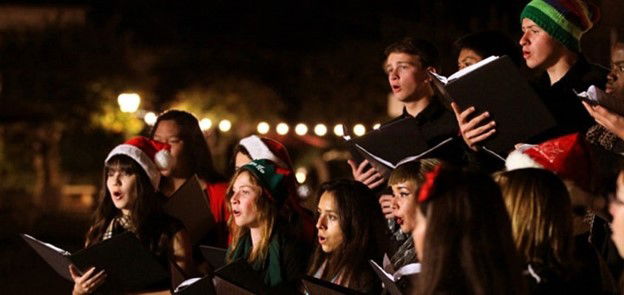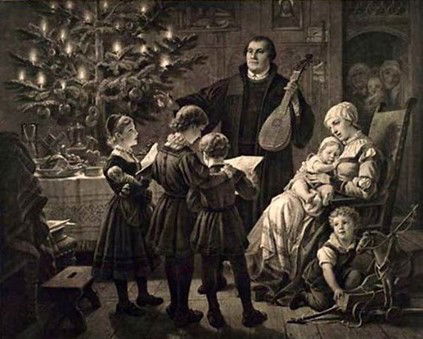What Makes the Perfect Christmas Music for Your Choral Group

Christmas is a time of joy, celebration, and music. For choral groups, it's an opportunity to spread the festive spirit and share the story of Christmas through song. But how do you choose the best Christmas music for your choral group? In this comprehensive guide, we will explore the steps to ensure you select the perfect repertoire that resonates with your group and captivates your audience. Whether you're a seasoned choir director or just starting, these tips will help you make informed choices.
1. Understand Your Choral Group:
Before diving into the world of Christmas music, it's crucial to understand your choral group's strengths, weaknesses, and preferences. Consider factors such as:
Vocal Range: Assess the vocal range of your singers. Do you have strong sopranos, altos, tenors, and basses, or is your group more balanced? This will help you choose music that showcases their abilities.
If you have an unbalanced group, you may want to choose music that better covers the available voices. For example, if the tenor and bass sections are a little sparse, consider finding music for Soprano, Alto and Baritone/Bass parts, often labeled SAB. More often than not, the Baritone/Bass part is confined to the range that tenors and basses share, so as not to put a strain on any of the voices.
Skill Level: Gauge the skill level of your choral group. Are they experienced singers who can handle complex harmonies, or are they beginners who need simpler arrangements?
Remember that music ensembles tend to change a bit year to year, whether it’s a high school group or community choir, so don’t choose something that would feature a person or small group of people who may not be in that ensemble next year, or semester.
Size: Take into account the size of your group. Here are a few things that are affected by the size of your group: * Unfortunately, the larger the group, the more likely that the words can become garbled, especially if the music goes fast. Smaller groups tend to be able to perform faster works. Imagine “Carol of the bells” performed at a lively tempo by a 300 voice choir. It wouldn’t be very good.
* Large groups, on the other hand, have the benefit of sheer numbers with which to perform a thunderous double forte. And, vice versa, a smaller group can perform a gentle double piano while still maintaining a full sound.
Musical Preferences: Consider the musical tastes of your choir members. Do they prefer traditional carols, contemporary Christian songs, or a mix of both? Understanding your choral group's characteristics will lay the foundation for your music selection process.
Just a Personal Note: In these days of attempted political correctness and all of the silliness that accompanies it, many schools and government agencies have tried to hijack Christmas and turn it into a nondescript winter holiday that celebrates nothing. If you are going to present a Christmas Concert, be brave enough to perform songs that present the true meaning of Christmas. That’s not to say, however, that you can’t have some fun songs as well. There’s more on that below.

2. Explore Variety in Christmas Music:
While traditional carols are wonderful choices, don't limit yourself. Explore a wide range of Christmas music, including:
Tradition with Classic Carols: Traditional Christmas carols have a timeless appeal that resonates with audiences of all ages. Classics like "Silent Night," "Hark! The Herald Angels Sing," and "O Holy Night" are not only musically beautiful but also carry profound meaning. They tell the story of the birth of Jesus Christ, making them ideal choices for choral performances with a Christian worldview. You may also want to include a variety of Christmas music from other cultures around the world. Here is a short list of some familiar and not-so-familiar tunes from different places on the globe that you can add to that repertoire:
* Germany - O du Fröhliche (Oh, How Joyful), a traditional carol written by Johannes Daniel Falk. Es ist ein Ros entsprungen (Lo, How a Rose E’er Blooming), first appearing in print in 1599.
* Italy - Tu Scendi Dalle Stelle, (You Come Down from the Stars), is a classic Italian Christmas carol written in the 1700s. Adeste Fidelis (O, Come All Ye faithful).
* France - Un flambeau, Jeannette, Isabelle (Bring a Torch, Jeanette, Isabella) French Provençal carol by Émile Blémont.
* Nigeria – Betelehemu (Bethlehem" in Yoruba)
* Russia - Na Rizdvo Khrystove (On the Nativity of Christ), a quick and upbeat carol that summarizes the nativity visitations. * England, Ireland, Scotland, Wales – (I listed these separately because, at the time of the writing of the Christmas carols in these countries, there was no concept of a “United Kingdom”.) – The Holly and the Ivy, an 18th Century English folk tune. The Wexford Carol, a 12th century Irish carol.
Contemporary Christian Songs: These songs combine modern musical elements with Christian themes. Consider pieces like "Mary, Did You Know?" or "Emmanuel (Hallowed Manger Ground)" for a fresh take on the Christmas story.

Secular Christmas Songs: While the focus is on Christian themes, incorporating a few secular Christmas songs like "Jingle Bells" or "Winter Wonderland" can add variety and fun to your repertoire, especially if you have a diverse or younger audience. Even songs about Santa Claus may be appropriate if his origin as Saint Nicholas is revealed.
3. Consider the Message and Lyrics:
The lyrics of the chosen songs are of paramount importance, especially when selecting music with a Christian worldview. Ensure that the lyrics align with the spiritual significance of Christmas. Look for songs that convey the themes of love, hope, peace, and the birth of Jesus Christ.
4. Match Songs to Your Choral Group's Abilities:
Once you've explored various Christmas songs, it's time to match them to your choral group's abilities. Consider the following:
* Vocal Range: Choose music that falls within your singers' vocal ranges. Avoid songs with extremely high or low notes that might strain their voices.
* Complexity: Assess the complexity of the harmonies and arrangements. Select pieces that your group can comfortably master within your rehearsal time.
* Choral Size: Adapt your music choices to your choral group's size. Smaller groups may excel in a cappella arrangements, while larger choirs can tackle more intricate compositions.
* Special Considerations: Some songs lend themselves to having a soloist, small group or rotating soloists or duets, etc. While the general rule may be to choose music that you can use every or every other year, sometimes there is a voice in your group that just needs to be shared with everyone. Don’t be afraid to let that voice shine. However, be sure that everyone knows why that voice is singing a solo or other special part, and be sure that there is no room for pride or condescension.

5. Mix Familiar and Less-Known Songs:
Balance your repertoire by mixing familiar songs with lesser-known pieces. While traditional carols are beloved classics, introducing songs that are new, less-famous and from other cultures can arouse the interest of your audience and challenge your choral group.
Some newer songs make great choral arrangements. The choices here would depend on your taste or the taste of your choral group. Examples of other carols that are less-famous or from other cultures include "Children, Go Where I Send Thee", a traditional African American spiritual, "I Wonder as I Wander" by American author John Jacob Niles, "In dulci jubilo", a 15th century carol often sung to the tune of “Good Christian Men Rejoice” and whose lyrics are a mixture of Latin and English, and “Adeste Fideles”, the original Latin version of “Oh, Come All Ye Faithful”.
6. Involve Your Choral Group in the Decision-Making: Engage your choir members in the music selection process. Encourage them to share their favorite Christmas songs or pieces they feel passionately about. Involving your singers creates a sense of ownership and enthusiasm for the chosen repertoire.
7. Practice and Rehearse Diligently:
Once you've finalized your Christmas music selections, dedicate ample time to practice and rehearsal. A well-rehearsed choir delivers a more polished and emotionally impactful performance.
For some in your choir, this performance is also an act of worship. The presentation should be done with the attitude that the group is presenting itself as a musical gift to the Creator of music and the One who was incarnated.
8. Adapt to Your Audience:
Consider the audience you'll be performing for. If your audience consists primarily of Christians, or if you’d like to make sure that your audience understands the true meaning of Christmas, you can focus on songs with a strong Christian message. Of course, you can always include songs that celebrate the broader themes of Christmas, such as love, unity, and goodwill. However, don’t dilute the true meaning of Christ’s incarnation.
9. Share the Christmas Story Through Music:
Remember that your choral performance is an opportunity to share the true meaning of Christmas with your audience. Encourage your singers to not only sing the notes but also convey the emotions and message behind the songs.
Use spoken word or narrations between songs to tell the story of Jesus' birth if appropriate. There may even be opportunity to include a tableau of the nativity scene or other parts of the Christmas story, especially if there are younger children at the same school, community center, etc.
Also, remember that the word “Christmas” is short for the Old English “Cristes maesse”, meaning the incarnation of the Savior of the world. So, to detract from its original meaning is to rob the holiday of its celebration of the real source of love, unity, goodwill, and peace.
When Planning the Concert Program, it might be a good idea to plan the music so as to move toward the real meaning of Christmas, even while including some of the more fun and peripheral kinds of music. A sample program might look like this:
- Joy to the World – perhaps a more contemporary arrangement.
- …Mr. Grinch and Welcome Christmas
- A selection of carols from around the world, even just two or three would do.
- Carol of the Bells
- Angels We Have heard on High
- Silent Night
In conclusion, choosing the best Christmas music for your choral group involves a thoughtful and tailored approach. Understand your choral group's characteristics, explore a diverse range of songs, and consider the message and lyrics of each piece. Match the songs to your group's abilities, involve your singers in the decision-making process, and practice diligently. By following these steps, you can create a memorable and spiritually meaningful choral performance that celebrates the joy and essence of Christmas.
Salt Cellar Creations understands the beauty and power that a Choral Group can convey, especially at Christmas time. We have a couple pieces available for your next Christmas concert. One is Silent Night (Song of Light), a shimmering, ethereal arrangement of the classic Christmas carol. Another is Celebrate Jesus, Celebrate Life, an energetic original composition that celebrates the incarnation of Jesus, with an invitation to others to join the celebration.
As always, we can compose an original Christmas piece or do a custom arrangement for you. There are two ways that this can be done; one is much more affordable than the other. And SCC is always looking for ideas of pieces to arrange or suggestions for original pieces. Find out more about what Salt Cellar Creations has to offer for Choral Groups HERE. Explore the available music HERE.
We have sold music not only in the US but in Canada, the United Kingdom, France, Australia, New Zealand and Austria. Please CONTACT US to let us know what we can do for you!